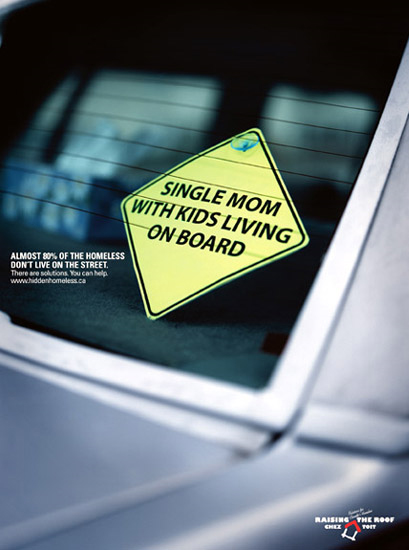Two answers come to mind when I think about this:
- On an every day, practical level, you probably can’t. People often go to great lengths to hide their circumstances. Hidden homelessness often means “out of sight, out of mind”.
- For service providers there are several ways in which you can identify and support people who are homeless or under-housed.
Some of these ideas also apply to those individuals who are living in extreme poverty as well. Answering ‘yes’ to any of these questions also doesn’t mean that the person is homeless or living in poverty – it’s just a starting point to engage in a conversation.
Here are some examples of questions to ask yourself:
As discussed recently at the Hub a job doesn’t guarantee freedom from poverty.
- Does the individual never have money for lunch, doesn’t bring a lunch and works through their lunch break?
- Is the individual never willing to contribute to gift collections?
- Have the hygiene habits or clothing of the individual changed? Do they wear the same clothes repeatedly?
- Does the individual fail to complete necessary paperwork or submit it with gaps – i.e. missing address, no emergency contact, no home phone number?
- Is the child hungry as soon as the day starts?
- Do they always “forget” their lunch?
- Do they return field trip permission forms or participate on school trips/events that cost money?
- Are they often late for no reason?
- Are they repeatedly wearing worn or dirty clothes?
- Do they seem extremely tired?
- Has their behaviour changed – are they quieter/louder, better/worse student?
- Are they worried about going home at night or on the weekends?
- Do you see the same person repeatedly?
- Do they spend an extended time in the library?
- Do they spend a chunk of the day sleeping?
- Is the individual bathing in the bathroom?
Mainstream service providers (as opposed to homeless providers) can also design questions in a way to determine someone’s situation. I’ve been asked (at several sensitive doctors offices):
- Do you have a safe place to sleep tonight?
- Are you worried about your housing situation?
- Do you need any referrals to housing or other community services?
Other questions can be asked as well:
- How many people live in your home? (This is a great way to identify overcrowding).
- Do you feel that you get enough to eat at home?
- What do you do at home/how do you spend your time?
Or be blunt:
- Are you or have you ever been homeless?
During discharge hospitals could ask:
- Where will you go to recover?
- Do you have a safe place to store your medication?
- Are you able to follow the treatment and recovery plan?
Schools that know they have homeless children or youth can conduct pooled fundraising so that it is easier for everyone to have the funds raised. West Hill Public School in Scarborough serves a few family shelters in the area and has created an Ambassador program to support homeless kids that arrive at the school from one of the local shelters.
This post is part of our Friday "Ask the Hub" blog series. Have a homeless-related question you want answered? E-mail us at thehub@edu.yorku.ca and we will provide a research-based answer.


